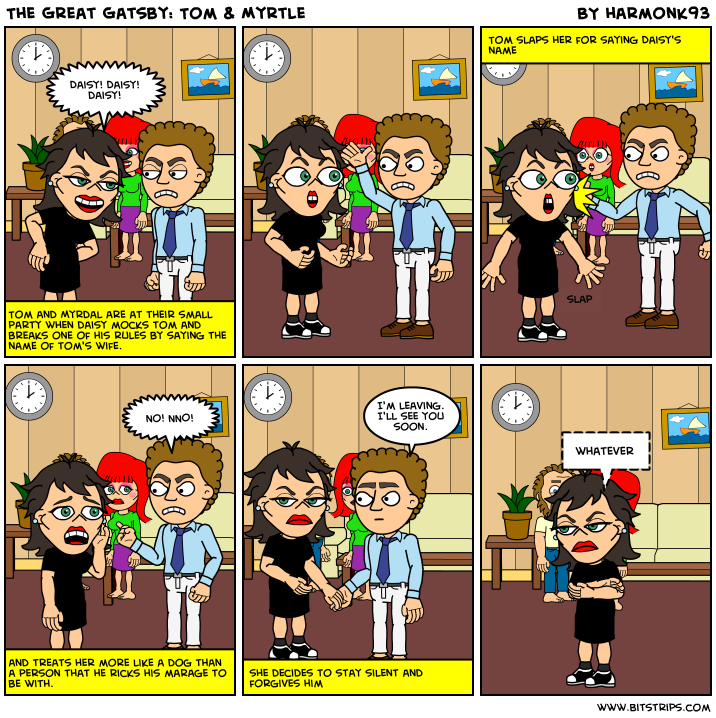Jay Gatsby, the main character in F. Scott Fitzgerald's novel,
The Great Gatsby, is one of the most nondescript characters in American literature. Gatsby, a round character, is continually shrouded with endless stories and gossip that create many aspects of his character and also mystify his character, who is never fully exposed. Fitzgerald's indirect characterization and implicit descriptions of Gatsby, causes readers to wonder at his true character. Like a wooden idol covered with gold, Gatsby wore a glittering facade over his true wooden nature as he transformed more and more into Jay Gatsby. Fitzgerald illustrates Gatsby's layered, created character that hides underneath a golden mask by stating
"The truth was that Jay Gatsby of West Egg, Long Island, sprang from his Platonic conception of himself. He was a son of God--a phrase which, if it means anything, means just that--and he must be about His Father's business, the service of a vast, vulgar, and meretricious beauty. So he invented just the sort of Jay Gatsby that a seventeen-year-old boy would be likely to invent, and to this conception he was faithful to the end" (Fitzgerald 98).
Gatsby, as a boy, was able to look beyond his mediocrity and create the life he felt he deserved by divine favor, a life that was as rich and glamorous as that of a god and so that is what he created--a god, in the form of Jay Gatsby, who lived this life in his mind with perfect flawlessness and that became his identity, one that he struggled daily to maintain. Gatsby, through his desperate attempts to bury his past and maintain his perfect facade, makes himself look more like James Gatz stuck in an unfamiliar dream than he does Jay Gatsby who lives in perfection. The only thing that is thoroughly and explicitly described about Gatsby is his smile, which Fitzgerald describes as
"...one of those rare smiles with a quality of eternal reassurance in it, that you may come across four or five times in life. It faced--or seemed to face--the whole external world for an instant, and then concentrated on
you with an irresistible prejudice in my favor. It understood you as far as you wanted to be understood, believed in you as you would like to believe in yourself, and assured you that it had precisely the impression of you that, at your best, you hoped to convey" (Fitzgerald 48).
Gatsby, though his true character is never definite, always came alive to Nick when he smiled; he was his most genuine self through his smile. No matter what else he did, his smile was a constant in his character that provided stability for an otherwise vague character.
Fitzgerald, through implicit characterization, created Gatsby as a round character and who's indistinct nature, blurred by the decadent facades and the gossip, lies, and rumors continually spread about him, leaves other characters and the readers wondering about the kind of man he really is and the kind of past he really has, but yet, the only thing explicitly described about Gatsby is his smile, a constant in his character that is a genuine reminder to Nick of Gatsby's good nature.

